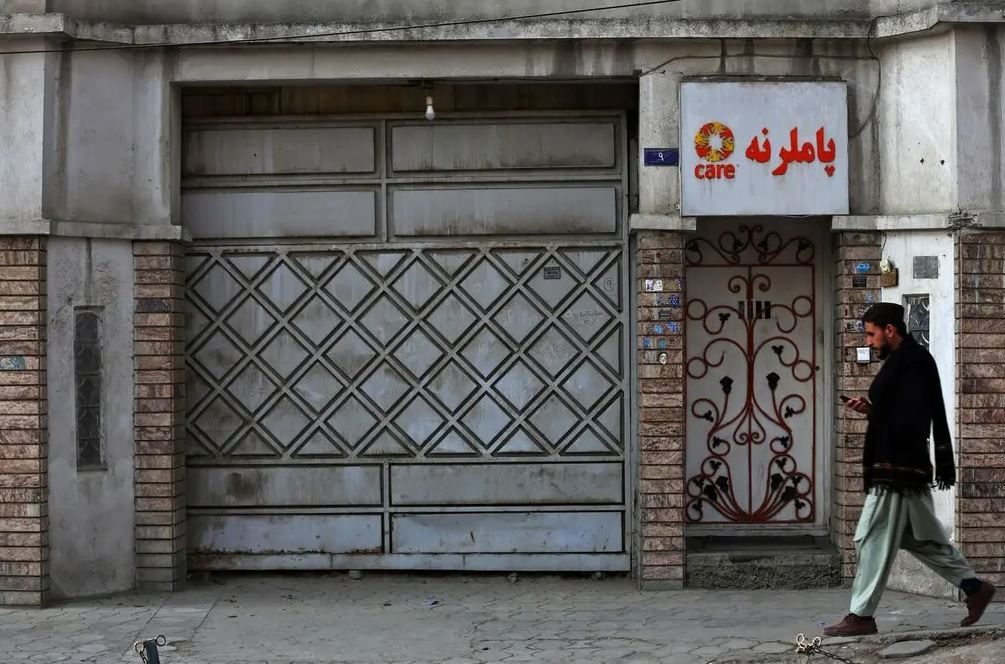After the Afghan government barred women from working in local and international humanitarian organisations, a number of international aid organisations temporarily suspended their programmes in Afghanistan, warning that relief work in the country could crumble without female staff. This comes after the Afghan government banned women from working in humanitarian organisations.
The decree puts the country at risk of losing billions of dollars in critical aid should major international relief organisations close their operations, according to relief groups. These are funds that are crucial for propping up Afghanistan’s public services and keeping the most vulnerable citizens of the country from the brink of famine amidst an economic collapse in the country.
The prohibition, which was first declared by the Afghan Ministry of Economy on Saturday, was the most recent in a series of policies imposed by the Taliban regime that have essentially removed women from many parts of public life and cut down women’s rights.
The Afghan government started enforcing a ban on female students attending private and state colleges one week ago. Both of these acts were further indications that the administration looks intent on resuming the authoritarian control it exercised in the 1990s.
On Sunday, the nonprofit groups Save the Children, the Norwegian Refugee Council, and CARE International voiced their opposition to the ban and said that they would pause their projects while they sought further information about the move.
There are around 1,500 people working for the Norwegian Refugee Council in Kabul organisation in Afghanistan, with a third of those employees being female. The advocacy manager for the organisation, Becky Roby, described the group as being “blindsided” by the news, which was sent to them in the form of a letter over the weekend.
She said that the decision to suspend programming was not one that was taken on a whim, and she added that they were worried about the impact it would have on the communities that they serve. She said that the firm could not tolerate discrimination against one-third of its workforce since this would imply that female employees, many of whom are the primary providers for their families, would be at risk of being unemployed for an extended period of time.
According to a tweet posted by the UN mission in Afghanistan, the senior United Nations official in Afghanistan, Ramiz Alakbarov, met with Mohammad Hanif, the Taliban government’s minister of economics, on Monday to discuss the need for the ban to be lifted. Hanif was present throughout the meeting.
The organisation did not provide any more information, but they did state that they were very worried about the directive and that they were warning that it infringed basic rights for women. It was not apparent whether or whether the embargo extended to the many humanitarian groups run by the United Nations.
The International Committee of the Red Cross expressed alarm about the news and said that it continued to employ around 3,000 female health professionals in the country. However, it issued a warning that calling into question the involvement of women would “put the whole humanitarian endeavour at risk.”
A warning was included in the decree that was issued on Saturday, stating that the ministry would cancel the operating licences of any firms that did not comply with the regulations. It was not immediately apparent if the rule simply applied to Afghan women working for humanitarian groups or whether it extended to any and all women working for such organisations.
A decree with far-reaching implications had only a few days before prevented Afghan women from attending colleges. This decision had a terrible effect on a generation of Afghan girls who had grown up under a government supported by the West that had pushed them to acquire an education. However, the fall of that government in December of the previous year resulted in a reduction of women’s rights in public life under the governance of the Taliban.
Even for organisations that were able to stay in Afghanistan, the loss of female aid workers might provide a significant obstacle to the distribution of assistance, especially to disadvantaged women and children. In many regions of the nation, women’s activities have grown increasingly limited, and many women only communicate with the males in their households. As a result, female humanitarian workers play an essential role in the distribution of home help in these regions.

